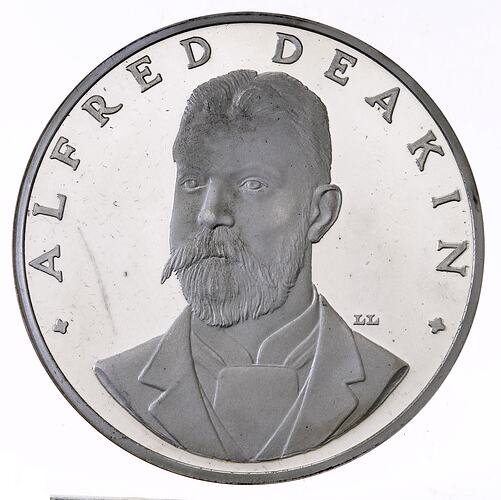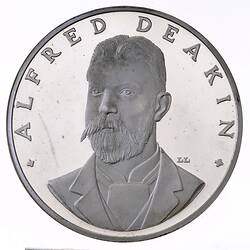Alfred Deakin (3 August 1856 - 7 October 1919), Australian politician, was a leader of the movement for Australian federation and later second Prime Minister of Australia. In the last quarter of the nineteenth century Deakin was a major contributor to the establishment of liberal reforms in the colony of Victoria, including the protection of rights at work. He also played a major part in establishing irrigation in Australia. It is likely that he could have been Premier, but he chose to devote his energy to federation.
Throughout the 1890s Deakin was a participant in conferences of representatives of the Australian colonies that were established to draft a constitution for the proposed federation. He played an important role in ensuring that the draft was liberal and democratic and in achieving compromises to enable its eventual success. Between conferences he worked to popularise the concept of federation and campaigned for its acceptance in colonial referenda. He then fought hard to ensure acceptance of the proposed constitution by the Government of the United Kingdom.
As Prime Minister Deakin completed a vast legislative program that makes him, with Labor's Andrew Fisher, the founder of an effective Commonwealth government. He expanded the High Court, provided major funding for the purchase of ships - leading to the establishment of the Royal Australian Navy as a significant force under the Fisher government - and established Australian control of Papua. Confronted by the rising Australian Labor Party in 1909 he merged his Protectionist Party with George Reid's Free Trade Party to create the Fusion, the main ancestor of the modern Liberal Party of Australia.
References:
http://en.wikipedia.org/wiki/Alfred_Deakin
http://www.deakin.edu.au/alfreddeakin/alfred/biography.htm
More Information
-
Keywords
-
Localities
-
Authors
-
Article types

